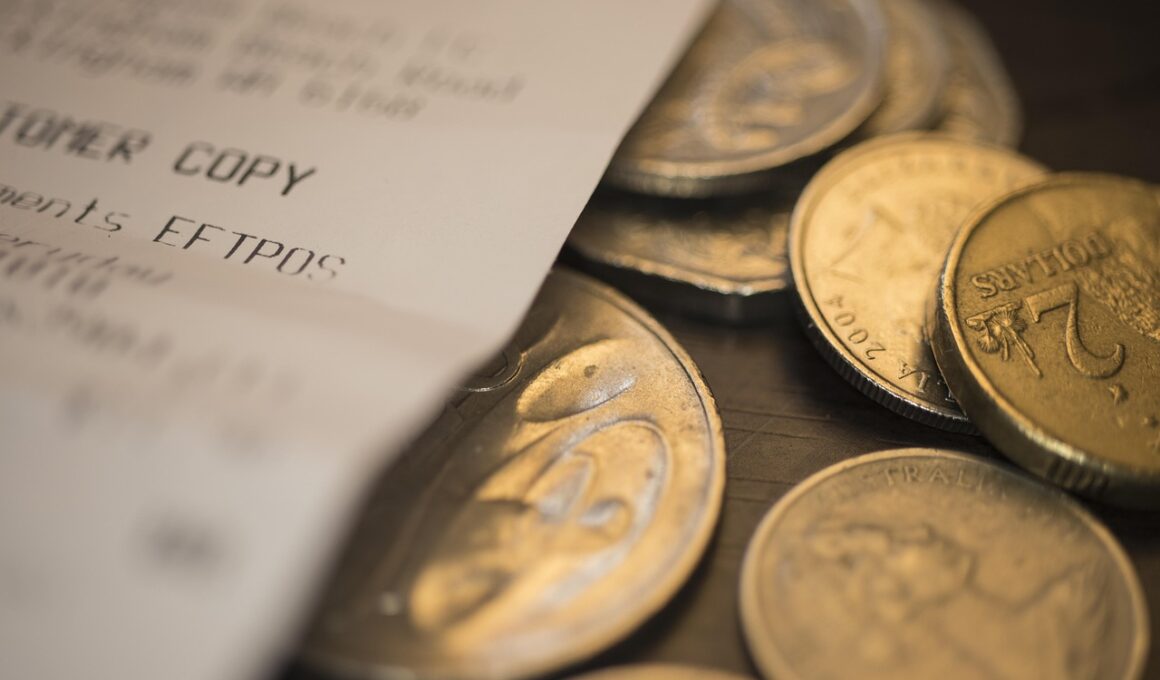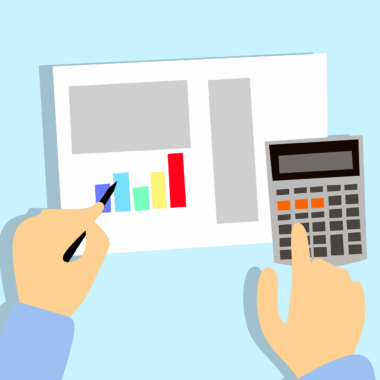How to Create a Sustainable Budget for Long-Term Financial Independence
Creating a sustainable budget is a key element in achieving financial independence. It requires insight into your income, expenses, and future financial goals. Start by assessing your income sources; these may include salaries, bonuses, or side hustles. List all expenses meticulously, categorizing them as fixed or variable. Fixed expenses remain constant, while variable expenses can fluctuate monthly. After listing all income and expenses, use this information to determine your net income, which is essential for further budget planning. Knowing your net income allows you to see how much is available for savings and investments, facilitating a path towards financial independence. Allocate funds appropriately across all expense categories, ensuring you’re not overspending in any specific area. Aim for minimal debt and high savings, as these are critical components of a financially independent lifestyle. Importantly, evaluate your budget monthly, adjusting as needed to reflect life’s changes. Creating a realistic budget can offer peace of mind and clarity toward achieving your long-term financial goals, keeping you on track and motivated. Ultimately, budgeting is not just about limiting spending; it’s about ensuring your financial future is secure.
The Importance of Setting Realistic Budget Goals
Setting realistic budget goals is essential to maintaining a sustainable budget. When you outline your goals, differentiate between short-term and long-term objectives. Short-term goals may include saving for a vacation or paying off a small debt. In contrast, long-term goals might involve saving for retirement or purchasing a home. Having clear goals makes it easier to allocate your monthly income effectively. Break down those broader goals into smaller, actionable steps to track your progress. Monitor spending to ensure you remain on track to meet your goals. If you find yourself falling behind, consider revising your goals or identifying non-essential expenses you can cut. It’s also helpful to set up an emergency fund, which can act as a financial cushion against unexpected expenses. An emergency fund can alleviate stress and provide financial stability, making it easier to stay committed to your long-term objectives. Use budgeting tools or software to assist you in tracking your income and expenses effectively. Additionally, remember to celebrate small victories along the way, which can motivate you to keep pushing towards your financial independence.
Staying flexible in your budgeting practice is integral to long-term success. Financial circumstances can change due to unforeseen events such as job loss or sudden emergencies. A rigid budget may lead to frustration and discourage you from adhering to your financial plan. Thus, allow some degree of flexibility to adjust your budget when necessary. For example, if income fluctuates during certain months, be prepared to shift your spending priorities. Alternatively, if you receive an unexpected bonus or a salary increase, consider directing those extra funds toward savings or investments. Flexibility entails assessing your categories regularly, ensuring they remain relevant to your lifestyle and financial goals. Moreover, periodically revisiting and adjusting targets keeps you engaged in the budgeting process. Consider using zero-based budgeting for a more dynamic approach. This method involves allocating every dollar worked for, ensuring that every cent has a purpose. It promotes awareness of spending and instills discipline when it comes to making financial decisions. Embrace the fluctuations of your earnings and expenses while always keeping your eye on the ultimate goal of financial independence.
Utilizing Technology to Enhance Budgeting
In today’s digital age, various technological solutions can help streamline your budgeting process. Consider using budgeting apps or software that can simplify tracking your income and expenses. These tools often provide features like automatic transaction categorization, visual spending reports, and alerts for spending limits. Many apps sync automatically with your bank accounts, allowing for real-time updates and minimizing manual input. This automation saves time and reduces the likelihood of errors. Additionally, these tools typically include goal-setting functionalities, making it easier to visualize progress towards financial independence. As you review spending data generated by these apps, identify patterns and areas of improvement. Some applications also offer educational resources, empowering users with knowledge about financial management. Using technology lowers barriers to effective budgeting and encourages habit formation through regular usage. Invest time into finding the right tool that resonates best with your preferences and needs. Furthermore, stay aware of security features when using these platforms, making sure your financial information is protected. By leveraging technology, you can lead yourself towards achieving a sustainable financial future while enhancing your budgeting discipline.
As you cultivate a successful budgeting routine, accountability becomes increasingly important. Consider finding a budget buddy or establishing a community where members can share experiences and challenges. Engaging with others who are also pursuing financial independence can provide valuable support and insights. Discuss budgeting strategies, share tips, and hold each other accountable for sticking to your financial plans. Moreover, communicate openly about financial failures without fear of judgment, as this fosters a learning environment. Participate in online forums or local financial workshops to meet like-minded individuals seeking financial independence. Identifying a mentor can also be beneficial. A mentor can provide guidance based on their financial experiences, offering practical advice to help navigate towards your goals. Incorporating external accountability into your budgeting journey can motivate you even when personal commitment wavers. Celebrate milestones together and maintain consistent check-ins to ensure everyone stays on track. Together, you can overcome setbacks and share in the satisfaction of reaching financial independence. Ultimately, forming supportive connections will enhance your journey, making it more enjoyable and fruitful.
Assessing Progress and Readjusting Your Budget
Regularly assessing your budgeting progress is crucial for long-term financial independence. Conduct periodic reviews to determine if your budget aligns with your goals and current financial situation. Examine each category of your budget and evaluate performance against original goals. Identify areas of overspending and potential cost-cutting strategies. If a particular category consistently exceeds its budget, investigate the reasons behind it. This analysis allows you to make necessary adjustments, ensuring financial goals remain achievable. Additionally, life changes such as marriage, job transitions, or having children typically necessitate a reevaluation of your budget. As your financial landscape evolves, don’t hesitate to shift priorities based on new circumstances. Utilize budgeting tools that facilitate quick adjustments to your spending plan. Moreover, consider setting annual financial milestones to guide your budgeting efforts throughout the year. Celebrate achievements along the way, charting your progress towards financial independence. Recording these milestones can serve as motivation to push through challenges. Remind yourself that budgeting is an ongoing process that requires adaptation and resilience. Ultimately, committed effort, proper assessment, and systematic adjustments open the door to financial freedom.
In conclusion, creating a sustainable budget is fundamental to achieving long-term financial independence. This process begins with understanding your income and expenses while setting realistic goals. Embracing flexibility is essential for adapting to life’s changes, and utilizing technology can enhance your budgeting experience. Engaging with accountability partners fosters motivation and accountability throughout your journey. Assessing your budget regularly allows for necessary adjustments alongside the changes in your circumstances. Taking the time to develop a conscientious budgeting method can lead to better financial decisions and reduced stress. As you progress, remember to celebrate your financial achievements, no matter their size, as they all contribute to your overall goals. Stay committed to maintaining an adaptable financial plan and remain patient as your journey unfolds. By prioritizing the principles of budgeting, you can secure a prosperous financial future. Remember, the journey towards financial freedom is a marathon, not a sprint, and requires dedication and vigilance over time. Begin today and take charge of your financial destiny, empowering yourself through informed budgeting practices and consistent evaluations.
For additional resources, consider exploring financial blogs and podcasts that discuss budgeting topics. Online content can provide insights into diverse budgeting strategies and emphasize the importance of maintaining a supportive community focused on financial independence. Consider subscribing to newsletters that share relevant financial advice while keeping you updated on new tools or resources. Seek out local workshops or online courses that delve into budgeting techniques and investing fundamentals. The more knowledge you acquire about managing money, the better equipped you’ll be to make informed decisions. Remember, each individual’s financial journey is unique, and practices should be tailored to meet personal objectives. Don’t hesitate to experiment with various strategies until you discover the one that resonates with you. Gradually, you will build confidence in your financial abilities, which will only enhance your budgeting success. Explore personal finance books that offer practical tips on reducing expenses while increasing savings rates. Investing time in financial education is an invaluable asset for your journey towards independence. Ultimately, the information shared from trusted sources can motivate and empower you to approach budgeting with confidence and enthusiasm.





